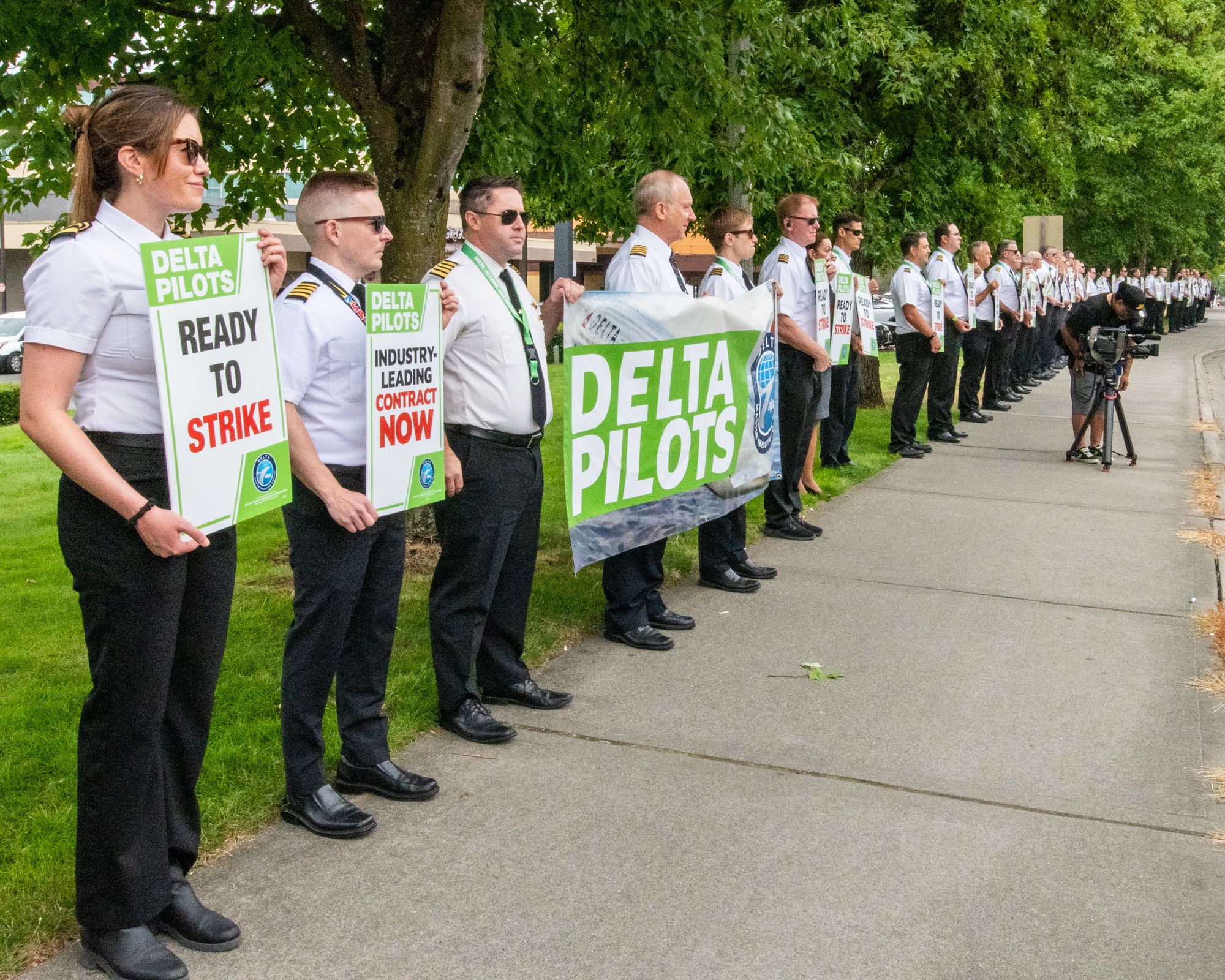Delta's pilot union has voted overwhelmingly to approve strike action if the carrier fails to reach an amenable agreement on pay rates and benefits soon. Represented by the Air Line Pilots Association (ALPA), the ballot passed with a stunning 99% approval, giving union leaders the power to strike if needed. With ALPA home to nearly 15,000 of Delta's pilots, a strike could leave the carrier crippled. Let's find out more.
Long negotiations
Today's strike authorization was the first one presented to Delta Air Lines pilots since 2006, highlighting the significance of the move. Negotiations over a new contract for pilots began back in April 2019, with no change to remuneration since 2016 (minus COVID changes). The talks went into mediation in February 2020 but were on hold for two years as COVID saw the airline industry wiped out for two years.
Fast forward to January 2022 and talks were finally back on. However, as we enter November, ALPA is not happy with the progress and is now preparing to use the biggest weapon in its arsenal: strike action. In a statement, Jason Ambrosi, chair of the Delta Master Executive Council, said,
"Today, Delta’s nearly 15,000 pilots sent a clear message to management that we are willing to go the distance to secure a contract that reflects the value we bring to Delta Air Lines as frontline leaders and long-term stakeholders. Delta has rebounded from the pandemic and is poised to be stronger than ever, posting record revenues for the third quarter. Meanwhile, our negotiations have dragged on for too long. Our goal is to reach an agreement, not to strike."
It is important to note that strike authorization does not mean that the unions will begin striking immediately. The vote is meant to be a negotiation tactic, forcing Delta's management to risk severe disruptions to operations if they cannot secure a deal with its pilots. But if strikes were to occur, here are the first steps.
Get the latest aviation news straight to your inbox: Sign up for our newsletters today.
Not there, yet
Considering Delta's pilots have not voted to strike since 2006, this vote is a momentous one. Fortunately, this is also likely the signal to the airline's top brass, increasing the pressure to negotiate a new contract soon. If both sides still fail to reach a deal, the National Mediation Board has to certify that negotiations would be unproductive and move to arbitration instead.
If either side refuses arbitration, it will trigger a 30-day cooling-off period, after which Delta's pilots can go on strike whenever they wish to. This means we will have a fair warning of upcoming disruptions depending on if the NMB announces that the cooling-off period has begun. If all goes well, that time will not come for passengers.
In a statement to CNN, Delta downplayed the risk of a strike over the lucrative winter season, saying,
"Delta pilots are not on strike, so this authorization vote will not affect our operation for our customers. Delta and ALPA have made significant progress in our negotiations and have only a few contract sections left to resolve. We are confident that the parties will reach an agreement that is fair and equitable, as we always have in past negotiations.”
What do you think about Delta's pilot strike vote? Let us know in the comments.

.jpg)

.jpg)